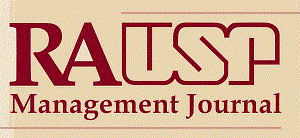Abstract
Purpose
This study aims to analyze the media coverage of the impact of extreme weather events (EWE) and related risk management activities in Brazil.
Design/methodology/approach
Using a documentary analysis, the authors examined the media coverage of droughts and floods from 2003 to 2013 with concomitant official reports.
Findings
The results indicate that although media coverage conveys the direct impact of floods and droughts on society, it underemphasizes the importance of risk management activities. Moreover, the private sector rarely engages in risk management and mitigation activities, despite the documented supply chain disruptions.
Research limitations/implications
This study focuses solely on media coverage as provided by wide-circulation newspaper in Brazil and would benefit by being extended to all media platforms.
Practical implications
The results highlight the need for private sector involvement in risk management activities to facilitate the adaptation to climate change.
Social implications
The study reveals the deficiency of existing reports and lack of awareness regarding EWE.
Originality/value
The study contributes by focusing on climate awareness and how society can adapt to climate change, as well as how businesses can improve supply chain operations to facilitate smoother risk management.
Climate change; Risk management; Risk perception; Extreme weather events; Media coverage





